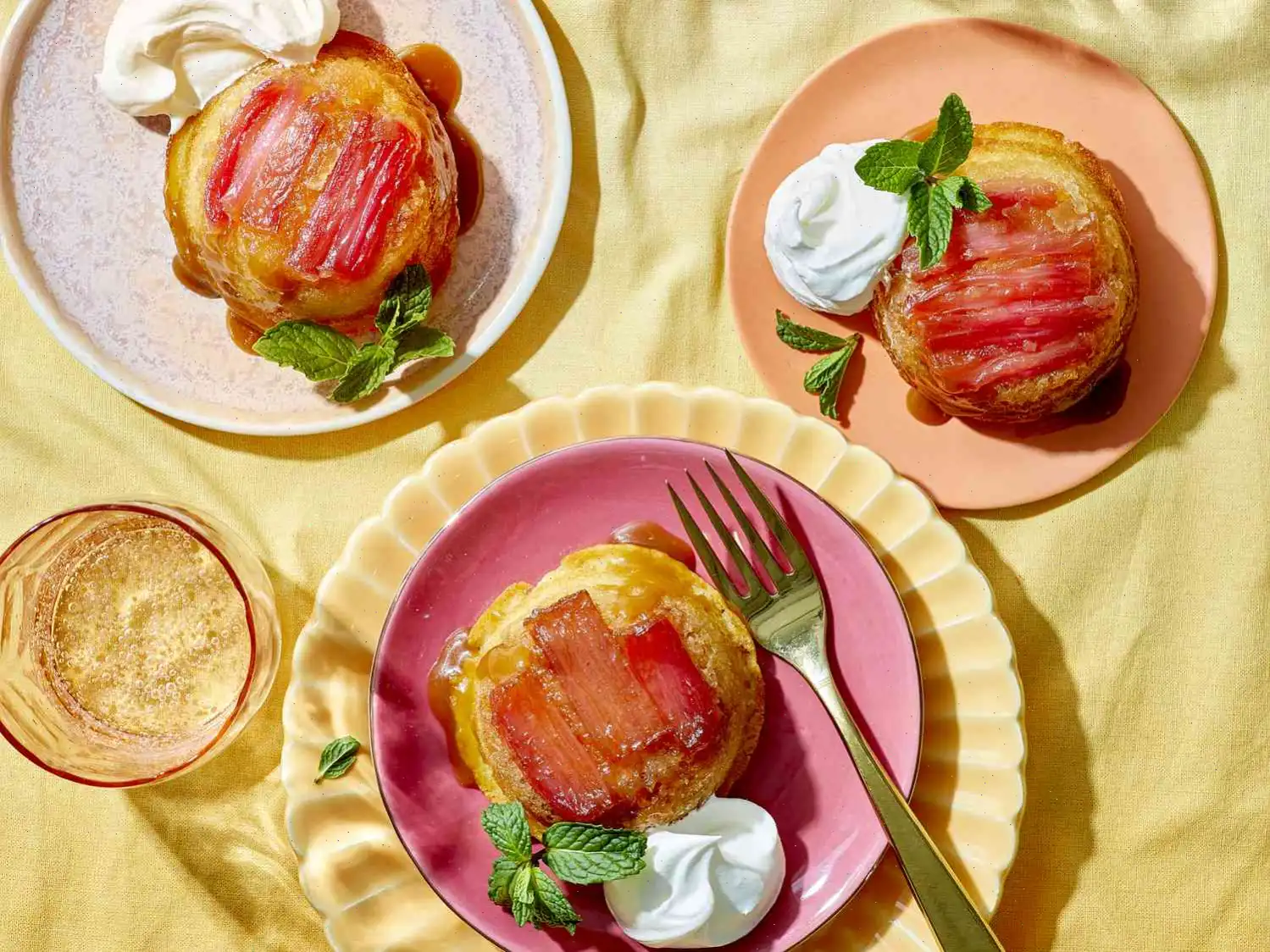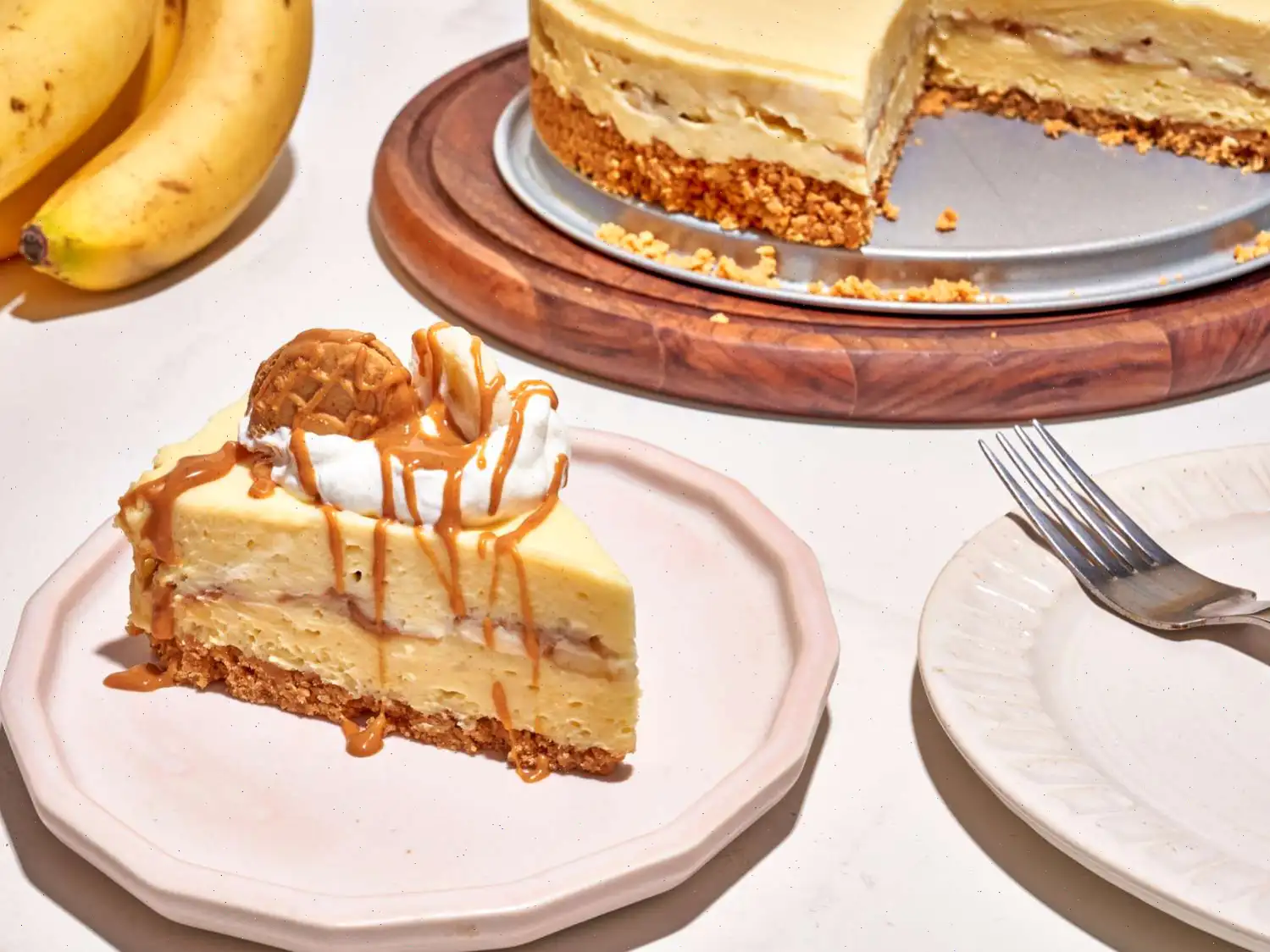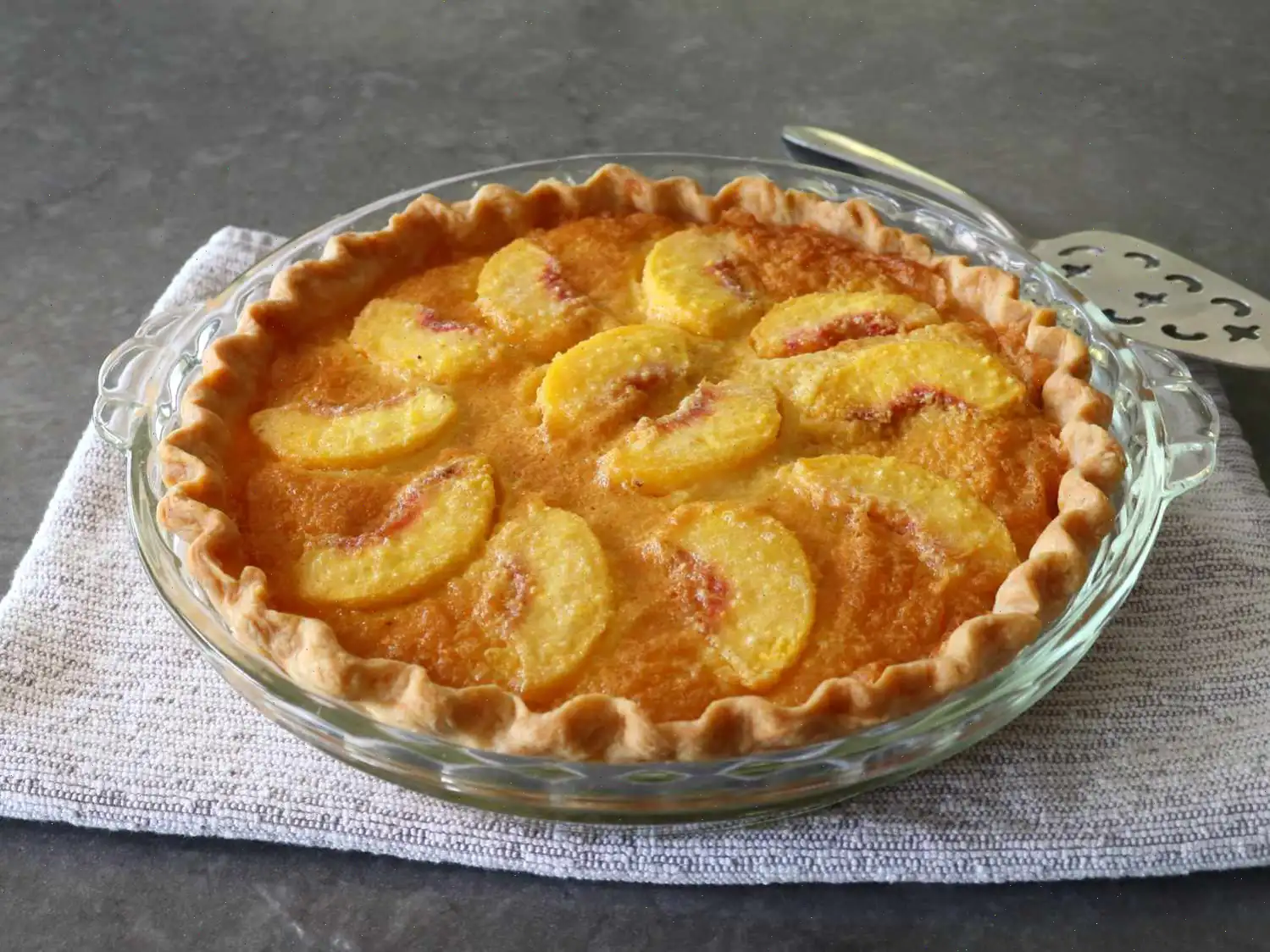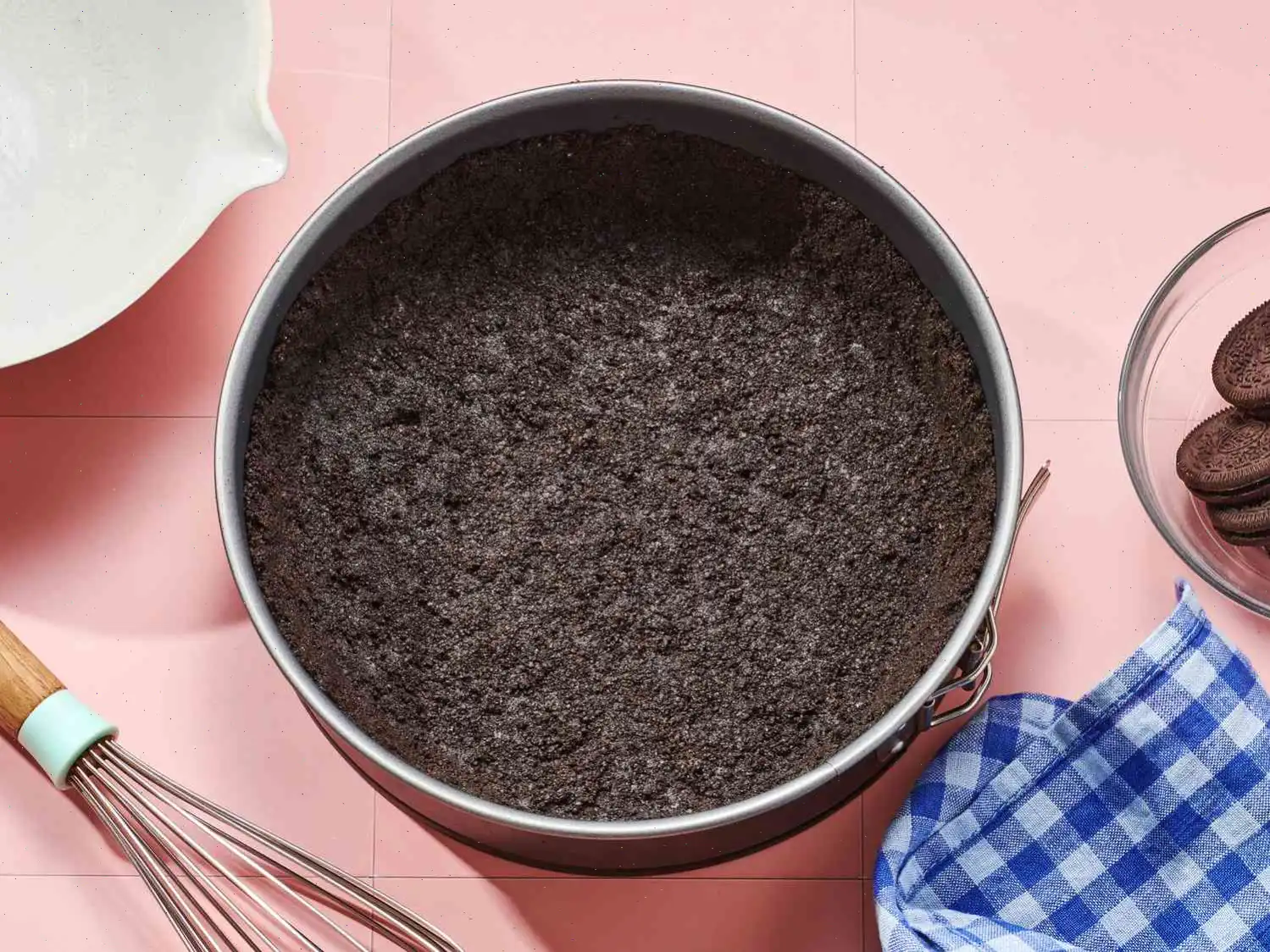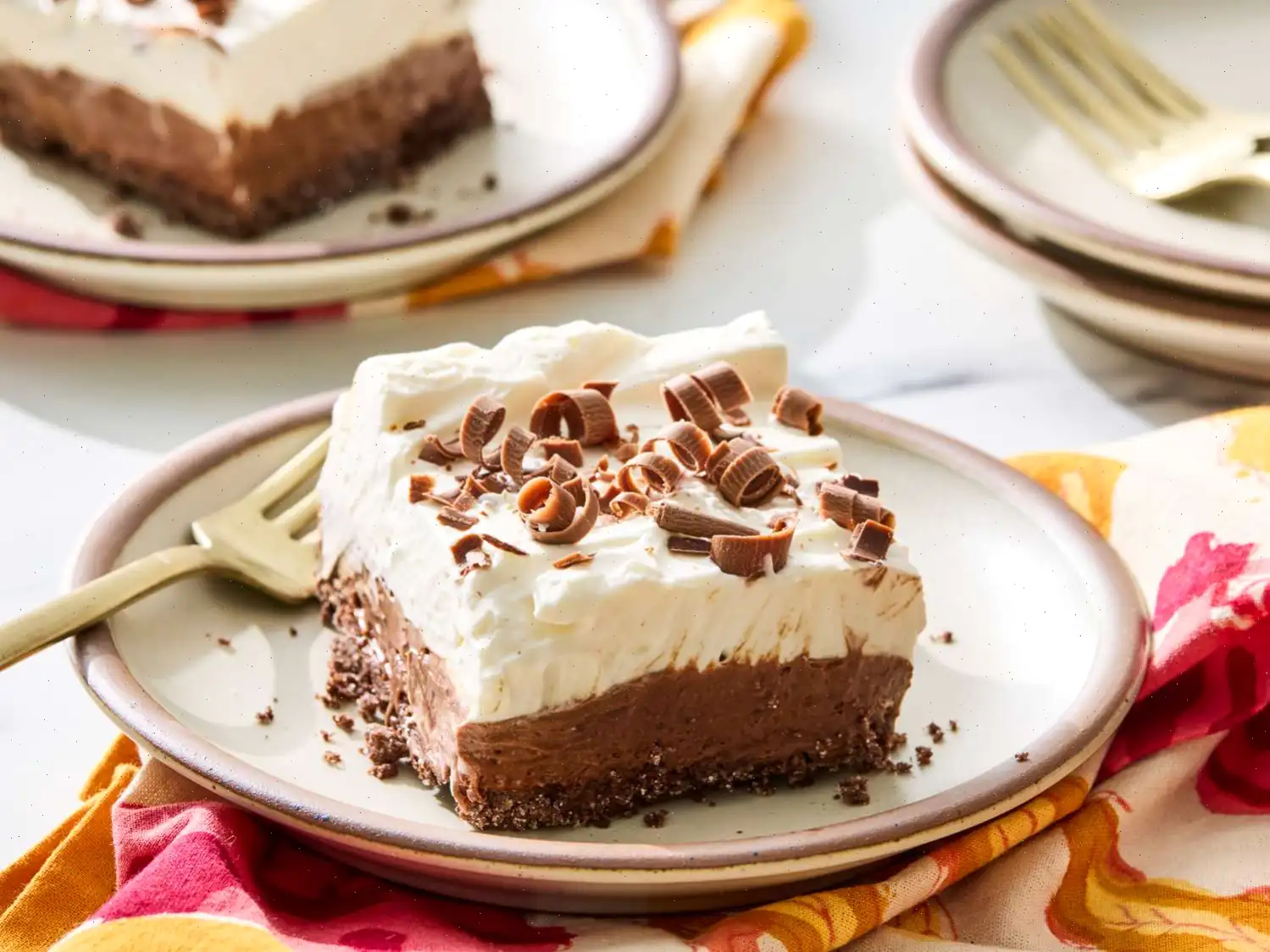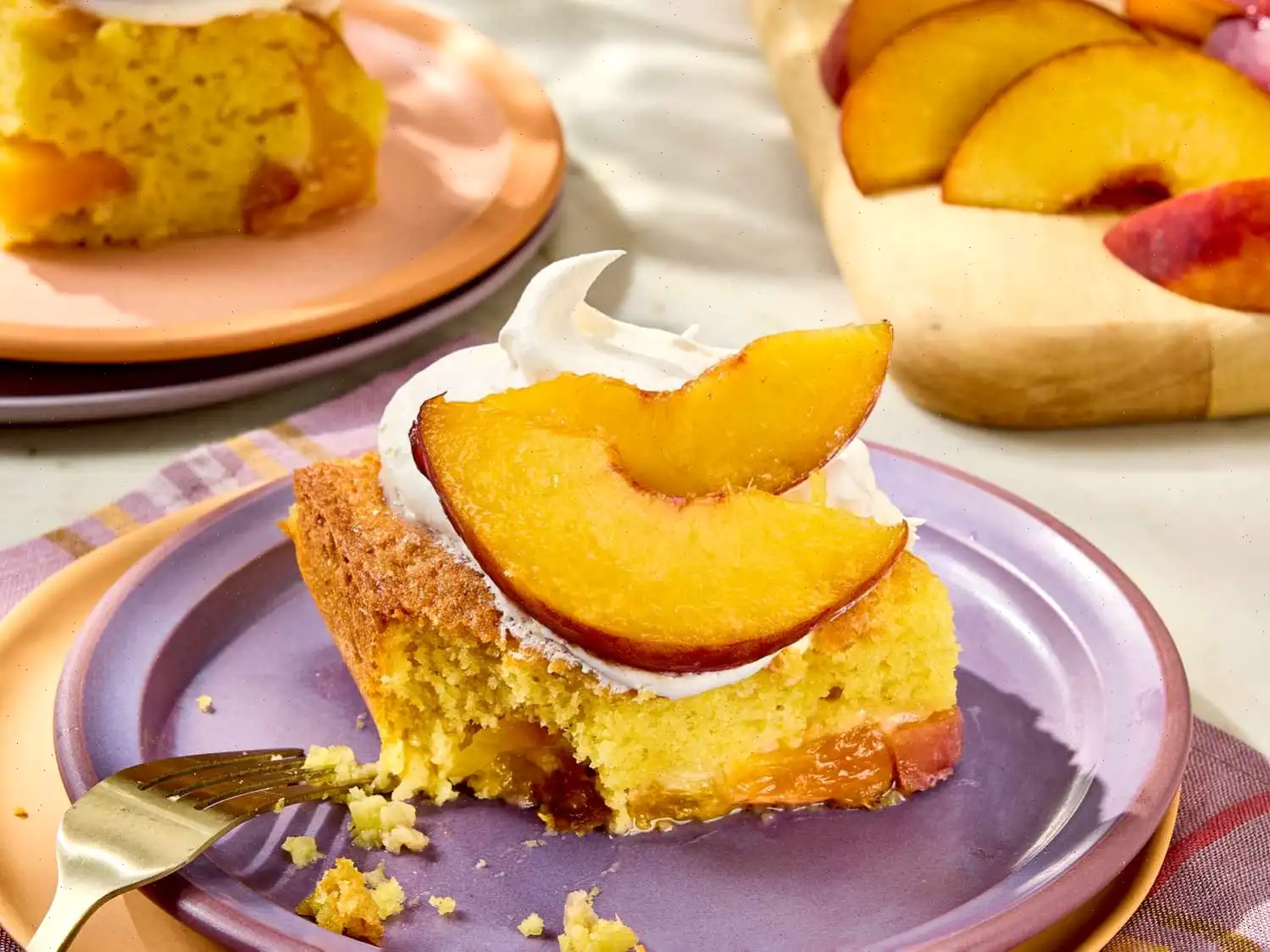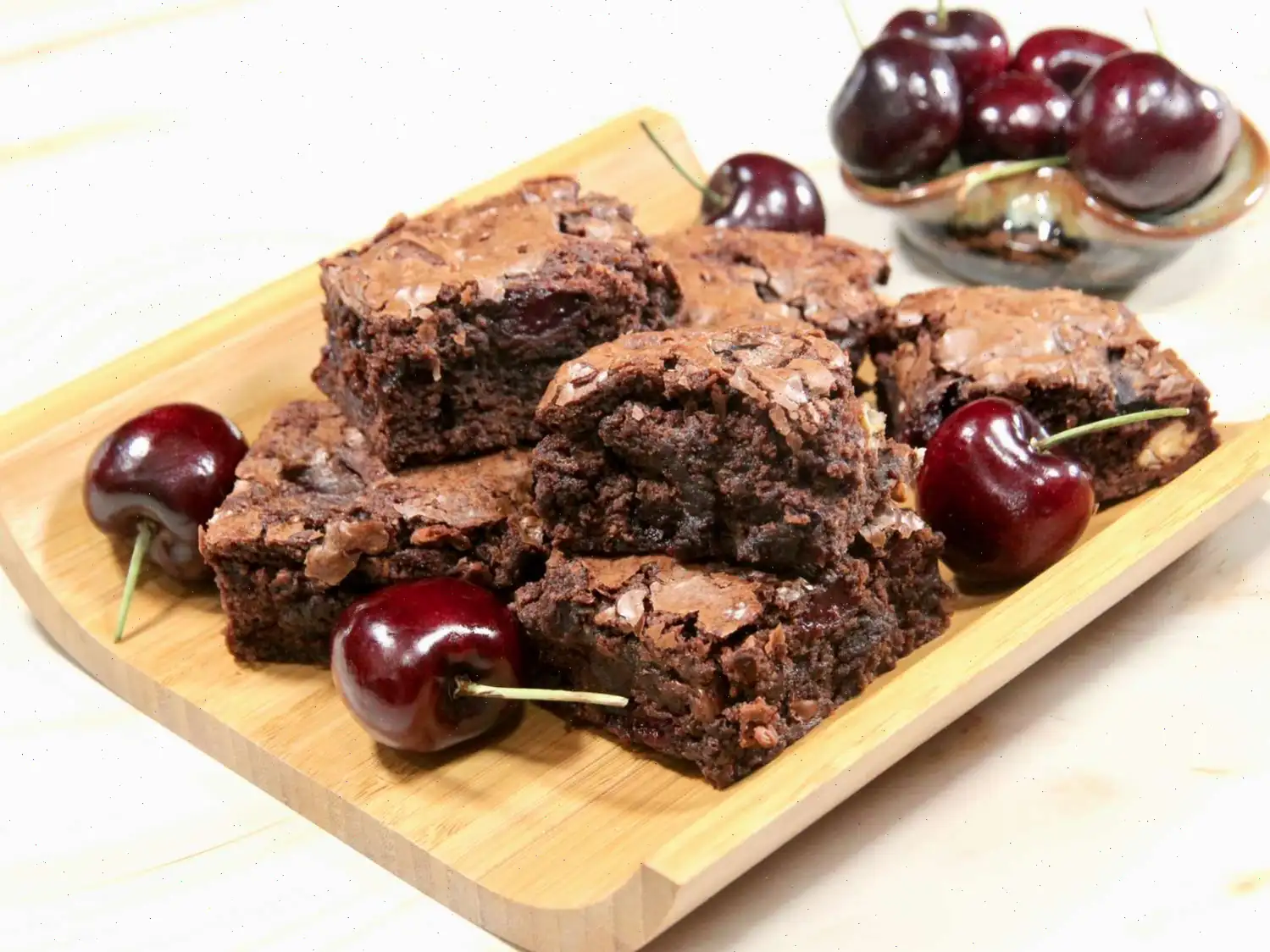
Receta de Magdalenas Invertidas de Ruibarbo
Precalienta el horno a 175°C y coloca moldes para cupcakes en una bandeja para muffins. En una cacerola, derrite la mantequilla con el azúcar moreno hasta que quede suave. Vierte esta mezcla en el fondo de cada molde para cupcakes. Coloca una rodaja de ruibarbo encima de la mezcla de mantequilla y azúcar. En un bol aparte, mezcla la harina, el polvo de hornear y la sal. En otro bol, bate el azúcar con la mantequilla, luego agrega los huevos y el extracto de vainilla. Poco a poco, incorpora los ingredientes secos hasta que estén bien combinados. Coloca la masa sobre las rodajas de ruibarbo en los moldes. Hornea durante 20-25 minutos, o hasta que al insertar un palillo en el centro, salga limpio. Deja enfriar antes de dar la vuelta a los cupcakes para mostrar el topping de ruibarbo. ¡Disfruta!
Ingredientes
- Spray antiadherente para hornear
- 6 cucharadas de mantequilla derretida
- 1 taza y 2 cucharadas de azcar moreno compacta
- 2 tazas de ruibarbo fresco o congelado, picado (aprox. 225 g)
- 1 paquete de mezcla para pastel blanco (460 g)
- 1 taza de agua
- 3 huevos grandes
- 1/3 taza de aceite vegetal
- 1/2 cucharadita de extracto de almendra
Instrucciones
- Precalienta el horno a 175C (350F) y roca ligeramente un molde para 18 magdalenas con spray antiadherente.
- Coloca 1 cucharadita de mantequilla derretida en cada cavidad del molde. Agrega 1 cucharada de azcar moreno y alrededor de 2 cucharadas de ruibarbo picado por cada hueco. Presiona suavemente con la parte posterior de una cuchara de madera para nivelar la mezcla.
- Hornea durante 7-8 minutos hasta que el ruibarbo empiece a ablandarse, luego retira del horno.
- En un bol grande, mezcla la preparacin para pastel con agua, huevos, aceite vegetal y extracto de almendra. Bate a velocidad baja durante 30 segundos hasta que los ingredientes estn humedecidos y luego aumenta a velocidad media durante 2 minutos hasta obtener una masa homognea.
- Vierte la masa sobre el ruibarbo en cada cavidad, llenando aproximadamente tres cuartos del espacio.
- Introduce nuevamente el molde en el horno y hornea de 18 a 20 minutos. Comprueba la coccin insertando un palillo en el centro: debe salir limpio.
- Deja reposar las magdalenas en el molde durante 5 minutos. Despus, invirtelas cuidadosamente sobre una rejilla forrada con papel encerado. Sirve tibias, vertiendo el jarabe de la base sobre la parte superior.
Informacin Nutricional por Porcin
- Caloras: 219
- Grasas: 12 g
- Carbohidratos: 26 g
- Protenas: 3 g
- Grasas saturadas: 4 g
- Colesterol: 42 mg
- Sodio: 130 mg
- Fibra diettica: 0 g
- Azcares totales: 20 g
- Vitamina C: 1 mg
- Calcio: 60 mg
- Hierro: 1 mg
- Potasio: 89 mg
Consejo
Estas magdalenas estn inspiradas en los cupcakes invertidos de pia de Bri, pero el ruibarbo les da un toque fresco y ligeramente cido que contrasta con el caramelo del azcar moreno.
Las Magdalenas Invertidas de Ruibarbo son una deliciosa variante del clsico pastel invertido de pia. Este postre ofrece el equilibrio perfecto entre el sabor cido del ruibarbo y la suavidad dulce y mantequillosa del pastel, lo que lo convierte en una opcin ideal para una reunin en primavera o verano. Estas magdalenas no solo son deliciosas, sino que tambin cuentan con una historia rica, variaciones regionales e interesantes datos que las hacen destacar frente a otros postres similares. Adentrmonos en el fascinante mundo del ruibarbo y exploremos los orgenes y caractersticas de esta exquisita delicia.
Origen e Historia de las Magdalenas Invertidas de Ruibarbo
El uso del ruibarbo en postres tiene una larga historia, que se remonta a tiempos antiguos. Originario de Siberia, el ruibarbo se utilizaba inicialmente con fines medicinales ms que culinarios. No fue hasta el siglo XVIII que el ruibarbo comenz a usarse ampliamente en la cocina, especialmente en Europa. En los Estados Unidos, el ruibarbo se convirti en un ingrediente popular para hacer tartas, mermeladas y, con el tiempo, pasteles y magdalenas.
El pastel invertido, por otro lado, tiene una historia ms reciente. Gan popularidad en las dcadas de 1920 y 1930, destacndose especialmente la versin con pia. Las Magdalenas Invertidas de Ruibarbo combinan el encanto del pastel invertido clsico con el sabor cido y refrescante del ruibarbo, creando una nueva interpretacin de un viejo favorito.
Variaciones Regionales y Especialidades
El ruibarbo es especialmente popular en regiones ms fras, como el noreste de los Estados Unidos, algunas partes de Canad y Europa. En estas zonas, el ruibarbo prospera durante los meses de primavera, convirtindose en una fruta (aunque tcnicamente es una verdura) de temporada muy esperada. El uso del ruibarbo en postres es particularmente comn en Nueva Inglaterra, donde suele aparecer en tartas, crumbles y pasteles. De hecho, algunas reas celebran festivales del ruibarbo para rendir homenaje a esta fruta nica.
Las Magdalenas Invertidas de Ruibarbo han sido adoptadas por panaderos de todo el mundo, aunque son especialmente populares en los Estados Unidos, donde se sirven a menudo en picnics de primavera o reuniones familiares. El platillo se ha convertido en una especialidad regional en reas conocidas por su produccin de ruibarbo, como Minnesota, donde es un alimento bsico en las cocinas locales.
Cmo las Magdalenas Invertidas de Ruibarbo se Diferencian de Otros Postres Similares
Aunque la idea de los pasteles invertidos evoca imgenes de pia, la versin con ruibarbo ofrece una dimensin completamente nueva de sabor. Los pasteles invertidos tradicionales presentan frutas caramelizadas como pias o duraznos, que son naturalmente dulces. El ruibarbo, por su parte, es cido y agrio, lo que crea un contraste refrescante con la dulzura de la masa del pastel. Esta diferencia en sabor es una de las caractersticas clave que hace que las Magdalenas Invertidas de Ruibarbo se distingan de otros postres similares.
Otra distincin es la forma. Mientras que los pasteles invertidos clsicos suelen hacerse en un solo molde grande, las magdalenas son ms individuales y fciles de transportar. Esto las convierte en una opcin perfecta para fiestas, picnics o cualquier ocasin en la que quieras servir pequeas porciones. Adems, las Magdalenas Invertidas de Ruibarbo incluyen una capa de azcar moreno y mantequilla derretida debajo del ruibarbo, creando un almibar dulce que se absorbe en el pastel, aadiendo profundidad y riqueza al sabor.
Dnde se Suelen Servir las Magdalenas Invertidas de Ruibarbo?
Estas magdalenas se suelen servir durante los ltimos meses de primavera o principios del verano, cuando el ruibarbo est en temporada. Son una excelente opcin para cualquier reunin primaveral, como barbacoas, brunches o fiestas en el jardn. En los Estados Unidos, podras encontrarlas como postre en eventos sociales de iglesia, reuniones familiares o mercados de agricultores. Tambin son una opcin popular en ventas de repostera y mesas de postres, ya que son fciles de servir y compartir.
Adems de su popularidad en Amrica del Norte, las Magdalenas Invertidas de Ruibarbo tambin han llegado a las cocinas europeas, especialmente en pases donde el ruibarbo crece abundantemente. En el Reino Unido y algunas partes de Escandinavia, estas magdalenas pueden encontrarse en panaderas locales, particularmente en reas con una rica tradicin en el cultivo de ruibarbo.
Datos Curiosos sobre el Ruibarbo
Sabas que el ruibarbo a menudo se conoce como "la planta de la tarta"? Este apodo proviene de su uso histrico en la preparacin de tartas, especialmente en Amrica del Norte y Europa. De hecho, las tartas de ruibarbo eran un postre comn durante la Gran Depresin, ya que el ruibarbo era una de las pocas plantas que se podan cosechar a principios de la primavera, antes de que otras cosechas estuvieran listas.
A pesar de su uso en recetas dulces, el ruibarbo es tcnicamente una verdura, aunque a menudo se trata como una fruta en la cocina. Los tallos comestibles de la planta de ruibarbo son la parte utilizada en las recetas, mientras que las hojas son txicas y nunca deben consumirse. Curiosamente, el ruibarbo es una de las primeras plantas que crecen en el jardn despus del invierno, lo que lo convierte en un ansiado manjar para los jardineros y panaderos caseros.
Otro dato interesante: El ruibarbo es rico en antioxidantes, lo que contribuye a sus beneficios para la salud, como el apoyo a la digestin y el aporte de vitamina K. Sin embargo, debido a su acidez, generalmente se endulza cuando se usa en postres, lo que lo convierte en una deliciosa pero saludable adicin a productos de repostera como estas Magdalenas Invertidas de Ruibarbo.
Conclusin
Las Magdalenas Invertidas de Ruibarbo son un postre nico y delicioso con una historia rica, una gran importancia regional y un perfil de sabor distintivo. Ya sea que se sirvan en una reunin familiar o en una venta de repostera local, seguramente impresionarn con su combinacin de sabores dulces, cidos y mantecosos.

